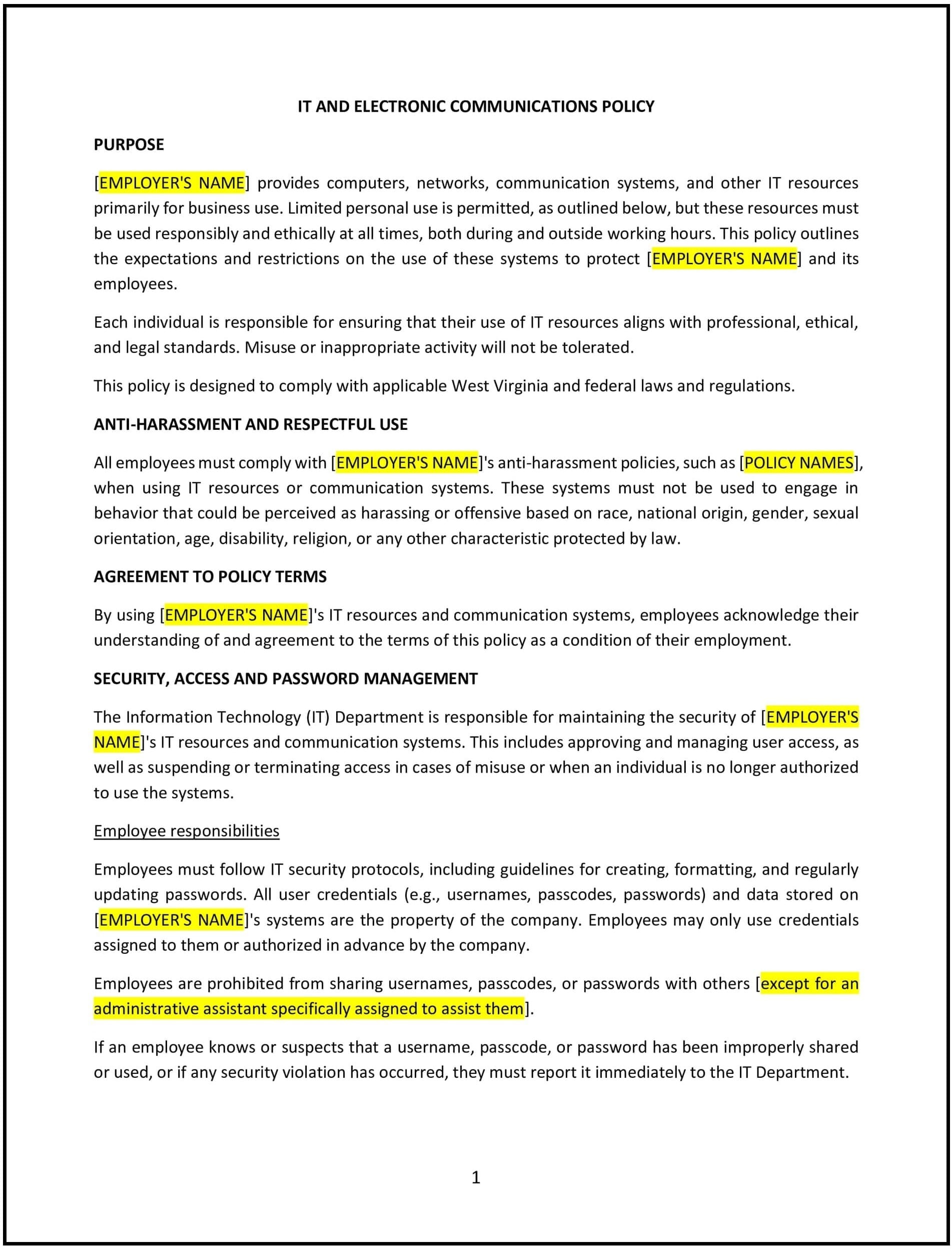IT and electronic communications policy (West Virginia): Free template
Got contracts to review? While you're here for policies, let Cobrief make contract review effortless—start your free review now.

Customize this template for free
IT and electronic communications policy (West Virginia)
In West Virginia, an IT and electronic communications policy establishes clear guidelines for the use of the organization’s technology resources, including email, internet, and devices. This policy ensures proper use, protects sensitive data, and supports compliance with legal and cybersecurity requirements.
The policy outlines acceptable usage, security measures, and procedures for addressing violations to promote a secure and efficient IT environment.
How to use this IT and electronic communications policy (West Virginia)
- Define acceptable use: Specify how employees can use company-provided IT resources, including email, internet, and devices, for business and limited personal purposes.
- Establish security protocols: Include guidelines for protecting data, such as using strong passwords, avoiding phishing scams, and encrypting sensitive information.
- Address prohibited activities: Clearly state activities that are not allowed, such as accessing inappropriate content, sharing confidential information, or installing unauthorized software.
- Provide monitoring information: Inform employees of the organization’s right to monitor IT and electronic communications to ensure compliance with the policy.
- Support compliance: Align the policy with West Virginia labor laws, federal regulations, and cybersecurity standards to avoid legal risks.
Benefits of using an IT and electronic communications policy (West Virginia)
- Enhances security: Protects the organization’s IT infrastructure and sensitive data from unauthorized access and cyber threats.
- Supports compliance: Improves adherence to West Virginia laws and federal regulations governing data protection and electronic communications.
- Promotes accountability: Establishes clear expectations for employees’ use of IT resources, reducing misuse or negligence.
- Reduces risks: Minimizes the likelihood of data breaches, legal liabilities, and reputational damage.
- Improves efficiency: Encourages proper use of IT resources, maximizing productivity and reducing distractions.
Tips for using an IT and electronic communications policy (West Virginia)
- Communicate the policy: Share the policy with employees during onboarding and ensure it is accessible for reference.
- Provide training: Offer regular training on cybersecurity best practices, data protection, and acceptable use of IT resources.
- Monitor compliance: Use IT tools to monitor network activity and ensure employees adhere to the policy without infringing on privacy rights.
- Regularly update the policy: Reflect changes in technology, laws, or organizational needs in the policy to maintain relevance.
- Encourage reporting: Establish a process for employees to report IT security concerns or violations of the policy.